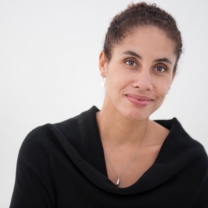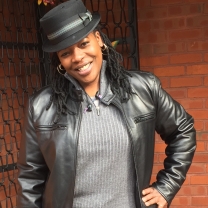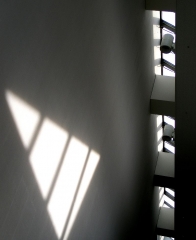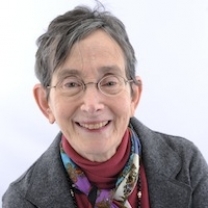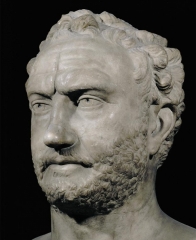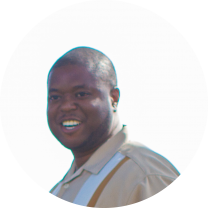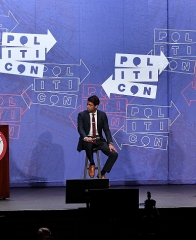 / A Response to DeVos’s “Ominous” Words
Subscribe
/ A Response to DeVos’s “Ominous” Words
Subscribe
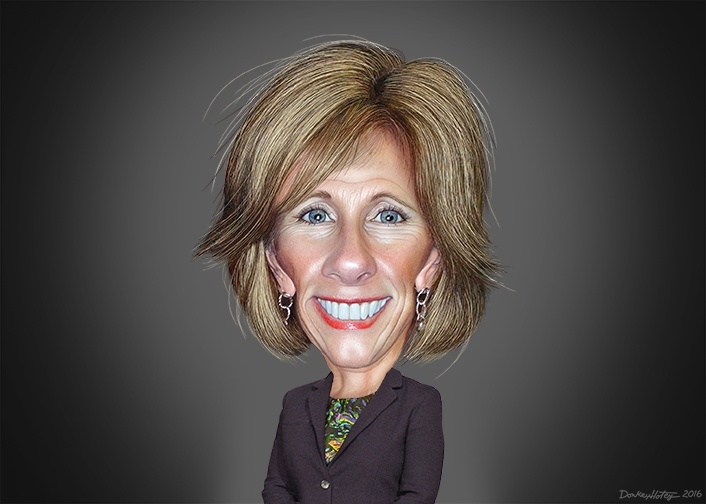
Just two weeks on the job, Betsy DeVos, the newly (and barely) confirmed Secretary of Education, shared her views on higher education—a topic she’d done her best to avoid during the confirmation process. At this year’s Conservative Political Action Conference (CPAC), she delivered a speech in which she warned: “faculty…tell you what to do, what to say, and more ominously, what to think.” She made this statement while criticizing what she identified as “the silencing” of conservative ideas on college campuses across the nation. Conservative voices, she insisted, must be heard: “Don’t shut up,” she said.
DeVos toed the party line with her remarks, quite literally. The 2016 platform for the Republican Party identified colleges and universities as dens of “political indoctrination,” the intellectual purposes of which are “undermined by [a presumed liberal] ideological bias.” Smuggled into DeVos’s comments was disdain—made explicit by the party’s platform—for “safe zones” erected through political correctness and guarded by trigger warnings. According to the nation’s top education official, “faculty, from adjunct professors to deans” are trampling on the First Amendment rights of conservative students.
Secretary DeVos’s comments hardly registered within “the mainstream media.” But, they hit their target squarely, by which I mean me—faculty at a small liberal arts college. Here, I offer two responses to DeVos’s characterization of college professors as partisan hacks.
First, my immediate and short response: offense taken.
Now, for a more measured rejoinder. DeVos’s accusations dismay me because they contribute to a broader assault on higher education—liberal arts education and the humanities in particular—as elitist and even extraneous. Once a cornerstone of the “American Dream,” higher education has become suspect, in part because conservatives increasingly cast it as a tool of the “liberal agenda.” It is sloppy—to say nothing of inaccurate—to characterize “safe spaces” as the real estate of leftists, or humanists. As a cultural historian of the twentieth century U.S., I teach courses in the history of gender and race in the United States. My courses cover much politically and emotionally loaded material; and, I assure you, safety has never been my goal (or my wish) for my students. Of course, any student should expect to have her experiences and personhood respected while being assured of her physical safety: fulfilling these expectations is the bare minimum among the responsibilities of faculty and staff at any college or university. To make students intellectually safe or comfortable, however, is at odds with my job, which is to help students become stronger, more flexible thinkers—people who can critically assess their circumstances and influence the world in the ways that they desire. When you attend college, I assume you have come to grow, to be challenged beyond what you already know or think. I firmly believe we more readily take in new knowledge when we are upset, by which I do not mean angered, but rather untethered from ideas that might bind us.
My larger issue with DeVos’s comments is her insinuation, her accusation, that as a professor I tell my students what to think. Again, nothing could be more counterproductive given my goals and my job as an educator and historian. The learning outcomes I described above require the consideration and exchange of ideas, varied and conflicting. “You absolutely get to have and thoughtfully express your politics in this space,” I tell my students. Otherwise how will they determine the utility of what they learn? During lectures, it is common for me to mark out my thesis and encourage students to question it just as I insist they do with any of the assigned texts. I have rooted my entire approach to teaching history in recognizing that narratives (and thus knowledge) of the past are constructed. In other words, I teach my students to apply a healthy, while respectful, skepticism to authoritative voices—including mine. What’s more, I did not come to this pedagogical approach on my own: I was encouraged in it by the professors who saw me through my undergraduate career at a liberal arts institution and my graduate studies at a state university.
As a woman of color who teaches about histories and relationships of power, I anticipate that students might read a set of politics onto me, and I do my level best to arrest that process from the jump. No student should ever worry about playing to what she thinks my politics are. I tell them: “my politics are history,” meaning, I care that they rigorously contextualize information before they attempt to interpret or apply it. That is all; that is everything.
Secretary DeVos, if you were an educator, you would know that anyone whose raison d’etre is teaching—not pontificating or performing, but teaching—not only values freedom of speech, she insists upon it. To that end, I consistently communicate your core message to my students, regardless of their politics: “Don’t shut up.” But I am always careful to add: “Don’t stop listening.”
Brenna Wynn Greer is a historian of race, gender, and culture in the twentieth-century United States. She works at the intersections of African-American, business, and visual culture history. Her current scholarship focuses on the relationship between African Americans' politics and their acts of making representations.
Photo: DonkeyHotey, “Betsy DeVos caricature,” via Flickr, 2017.
